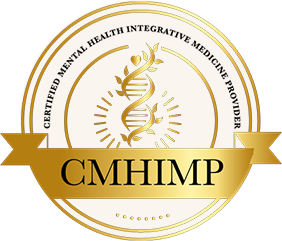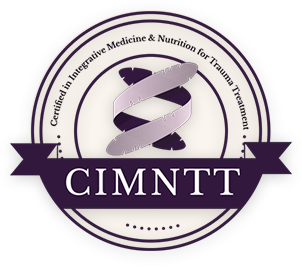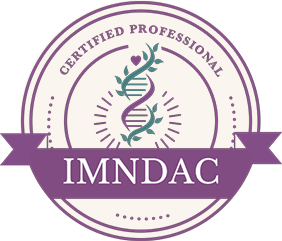Certificación
Vitamin D in Menopausal Health: Implications for Bone, Cardiovascular, and Immune Function
Vitamin D is essential for women’s health during and after menopause, and its benefits reach further than calcium balance and bone strength. Recent studies have shown that vitamin D supports metabolism and heart health, helps regulate the immune system, eases inflammation, and improves overall quality of life.

Supporting people through aging and life’s transitions has always been central to my work as a practitioner and teacher, and menopause is one of the most significant passages in a woman’s life.
Vitamin D is technically a neurohormone, and it plays a crucial role in supporting women’s health. It contributes to maintaining bone strength, supports cardiovascular function, eases some genitourinary symptoms, helps manage chronic pain, and influences emotional well-being. It allows the body to absorb calcium and phosphate, plays a role in maintaining immune balance, helps calm inflammation, and supports mood and cognitive function. When taken alongside vitamin K2, research suggests that it improves bone health and provides additional protection for the heart, making this combination especially beneficial as we age.
Vitamin D deficiency is prevalent, particularly in people living above the 37th parallel, which is why supplementation becomes essential for most women. Annual blood testing can help assess vitamin D status, but it’s important to remember that “normal” ranges in lab reports don’t always reflect the levels required for optimal health.
Below, I review five recent studies that deepen our understanding of how vitamin D helps women maintain optimal health during and after menopause.
The first study, a narrative review, looks at how vitamin D deficiency can worsen the health risks of menopause. The authors discuss its links to endocrine and clinical changes during this transition, and point to the potential role of supplementation in addressing the multi-organ effects that follow estrogen decline.
The second article explores the link between vitamin D levels and burning mouth syndrome (BMS), a condition tied to both pain and inflammation, in postmenopausal women. The findings of this study show that higher vitamin D levels are associated with reduced pain intensity, improved oral health-related quality of life, and lower inflammatory markers, suggesting therapeutic potential for managing BMS.
The third study looks at vitamin D’s role in menopausal health more broadly, going well beyond its effects on bone metabolism. It points to possible benefits for cardiovascular function, genitourinary comfort, mood, and even certain cancer risks. Overall, the review suggests that vitamin D acts across multiple systems to help support balance during this stage of life.
The fourth study turns to heart health, summarizing evidence that low vitamin D levels are often linked with problems like disrupted glucose control, changes in lipid profiles, high blood pressure, and weight gain in postmenopausal women. This article clarifies that correcting this deficiency isn’t a complete solution, but keeping vitamin D in an optimal range is an important step toward lowering long-term cardiovascular risks.
The fifth study reviews clinical trials testing the combined use of vitamins D and K in postmenopausal women. It shows that supplementing with both of these vitamins together can enhance bone strength, support cardiovascular health, and promote overall healthier aging. Because often diet alone doesn’t provide enough of either of these vitamins, the authors highlight supplementation as an effective preventive strategy.
Tags: vitamin D, menopause, bone health, osteoporosis, cardiovascular health, supplementation, inflammation, pain modulation, genitourinary syndrome of menopause (GSM), emotional health, immune function, synergistic nutrients, vitamin K
Interested in Learning More?
- Course(s): Plant Medicine & Nutrition for Wellness During Life’s Transitions
- Course(s): Effective Strategies to Balance Mood and Enhance Cognitive Function
- Book(s): Natural Woman: Herbal Remedies for Radiant Health at Every Age and Stage of Life
- Book(s): Nutrition Essentials For Mental Health: A Complete Guide To The Food-Mood Connection
Research Glossary
Research has its own vocabulary. To help you decipher research, I created a Glossary to ease the way. You may access it here: Research Glossary
Referenced Research Publications
JPMA. The Journal of the Pakistan Medical Association
April, 2024
DOI: 10.47391/JPMA.24-27
Vitamin D and Menopause
Abstract
Menopause is the transition period in female life cycle. Resultant hormonal changes lead to adverse health effects. Women may seek treatment due to significant impairment in quality of life. Vitamin D deficiency is a globally prevalent problem. Vitamin D deficiency in menopausal women may aggravate the adverse health risks associated with menopause. In this article, the authors discuss endocrinology and clinical features of menopause, Vitamin D and its links with menopause, and the potential role of Vitamin D supplementation to combat detrimental multi-organ system effects of menopause.
Reference
Sharma, M., & Kalra, S. (2024). Vitamin D and Menopause. JPMA. The Journal of the Pakistan Medical Association, 74(4), 815–817. https://doi.org/10.47391/JPMA.24-27
Journal of oral and facial pain and headache
2025, marzo 12
DOI: 10.22514/jofph.2025.008
Vitamin D as a modulator of pain and inflammation in postmenopausal females with burning mouth syndrome
Abstract
Background: Vitamin D has roles in neurological, hormonal and immunological processes, affecting various pain disorders and related comorbidities. The aim of this study was to investigate relationship between vitamin D levels and clinical features in postmenopausal females with burning mouth syndrome (BMS).
Methods: This retrospective, cross-sectional study reviewed clinical and laboratory data from 144 postmenopausal females with BMS. Laboratory tests measured 25-(OH) hydroxyvitamin D, hematic components and inflammatory markers. Participants were categorized by serum levels of 25-(OH) hydroxyvitamin D, as deficient (<20 ng/mL), inadequate (20-30 ng/mL), and adequate (>30 ng/mL). Pain intensity and oral health-related quality of life were assessed using visual analog scale (VAS), McGuill Pain Questionnaire (MPQ) and Oral Health Impact Profile-49 (OHIP-49).
Results: Pain intensity and oral health-related quality of life were associated with serum vitamin D levels. Hemoglobin, folic acid and high-sensitivity C-reactive protein (hs-CRP) concentrations varied among groups. Serum 25-(OH) hydroxyvitamin D levels showed negative correlation with VAS, MPQ sensory, MPQ affective, MPQ evaluative and OHIP-49 scores, indicating lower pain intensity and suffering with higher vitamin D levels. Additionally, iron levels were negatively related to VAS score, while folic acid levels were negatively associated with OHIP-49 score. Serum 25-(OH) hydroxyvitamin D levels were negatively correlated with hs-CRP levels.
Conclusions: These findings suggest significant interactions between 25-(OH) hydroxyvitamin D levels and pain intensity and suffering and oral health-related quality of life, indicating its therapeutic potential for postmenopausal BMS patients.
Reference
Kang J. H. (2025). Vitamin D as a modulator of pain and inflammation in postmenopausal females with burning mouth syndrome. Journal of oral & facial pain and headache, 39(1), 93–102. https://doi.org/10.22514/jofph.2025.008
Frontiers in physiology
2023, junio 12
DOI: 10.3389/fphys.2023.1211896
The role of vitamin D in menopausal women's health
Abstract
Vitamin D (VD) is known to play an important role in the maintenance of calcium homeostasis and bone metabolism. In recent years, there has also been a growing interest in Vitamin D for health issues beyond the bones. Menopausal women are at risk of reduced bone density and increased risk of fracture due to a decline in estrogen levels. There is also an increased risk of cardiovascular disease, diabetes and hyperlipidaemia due to impaired lipid metabolism. The menopausal and emotional symptoms due to menopause are also increasingly prominent. This article summarizes the role of Vitamin D in menopausal women's health, including the effects of Vitamin D on skeletal muscle, cardiovascular disease, Genitourinary Syndrome of Menopause (GSM), cancer and emotional symptoms. Vitamin D regulates the growth of vaginal epithelial cells and alleviates genitourinary tract problems in menopausal women. Vitamin D also modulates immune function and influences the production of adipokines. Vitamin D and its metabolites also have an anti-proliferative effect on tumour cells. This narrative review, by summarizing recent work on the role of Vitamin D in menopausal women and in animal models of menopause, aims to provide a basis for further development of the role of Vitamin D in the health of menopausal women.
Reference
Mei, Z., Hu, H., Zou, Y., & Li, D. (2023). The role of vitamin D in menopausal women's health. Frontiers in physiology, 14, 1211896. https://doi.org/10.3389/fphys.2023.1211896
Maturitas
2009, marzo 20
DOI: 10.1016/j.maturitas.2008.12.020
Vitamin D metabolism and cardiovascular risk factors in postmenopausal women
Abstract
Objectives: The purpose of this review is to focus on the association of vitamin D and cardiovascular risk factors in postmenopausal women.
Methods: Review of the relevant literature and results from recent clinical studies as well as critical analysis of published results concerning the association of vitamin D and cardiovascular risk factors in postmenopausal women obtained from both a PubMed and individual searches.
Results and discussion: Both basic science and clinical studies support the protective role of vitamin D on cardiovascular health, although there are controversial results in the literature. Hypovitaminosis D is associated with disturbed glucose metabolism and pancreatic beta-cell dysfunction, lipoprotein alterations, hypertension, overweight and obesity. The evidence highlights the importance of improving vitamin D status in the general population for the prevention of adverse long-term health risks, including cardiovascular health. The optimal vitamin D dose remains to be determined. However, correction of low vitamin D itself does not guarantee the prevention of these conditions.
Reference
Pérez-López F. R. (2009). Vitamin D metabolism and cardiovascular risk factors in postmenopausal women. Maturitas, 62(3), 248–262. https://doi.org/10.1016/j.maturitas.2008.12.020
Nutrients
2024, julio 20
DOI: 10.3390/nu16142356
Abstract
Aging is a complex process and a significant risk factor for chronic diseases. Menopause, a component of aging in women, is associated with several important cardiometabolic conditions including metabolic syndrome, osteoporosis, and cardiovascular diseases. Menopausal women could benefit from preventative strategies that may decrease morbidity and mortality and improve their quality of life. Vitamins D and K are essential nutrients required for bone health, immune function, and reducing cardiovascular risks, yet their synergistic effect is less understood in aging women. This is the first comprehensive review to summarize the evidence found in randomized clinical trials of the beneficial effects of vitamin D and K co-treatment in postmenopausal women. In our literature search across key electronic databases such as Cochrane, PubMed, and Ovid, we identified 31 pertinent studies. Overall, significant findings indicate that the combined intake of vitamins D and K may positively affect cardiovascular and bone health in postmenopausal women, emphasizing the importance of maintaining a healthy diet rich in vegetables and fermented dairy products. Given the challenges in obtaining all necessary nutrients solely through the diet, vitamin D and K supplements are recommended for postmenopausal women to promote healthy aging and well-being.
Reference
Rusu, M. E., Bigman, G., Ryan, A. S., & Popa, D. S. (2024). Investigating the Effects and Mechanisms of Combined Vitamin D and K Supplementation in Postmenopausal Women: An Up-to-Date Comprehensive Review of Clinical Studies. Nutrients, 16(14), 2356. https://doi.org/10.3390/nu16142356













